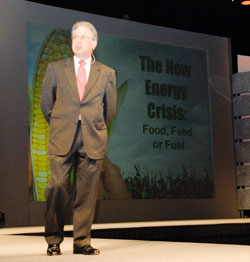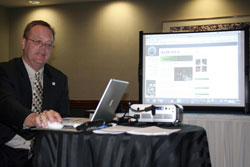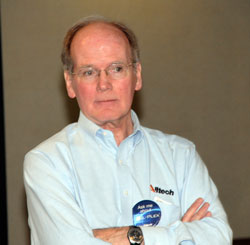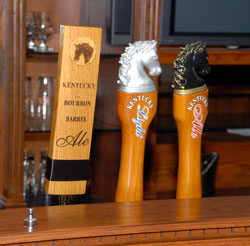 I sure hope you’re not getting tired of hearing about where I’m going next. This time it’s another ethanol related adventure in Indianapolis. It’s race week folks and that means working with the Ethanol Promotion and Information Council once again. I’m heading east today and there are activities scheduled through race time on Sunday.
I sure hope you’re not getting tired of hearing about where I’m going next. This time it’s another ethanol related adventure in Indianapolis. It’s race week folks and that means working with the Ethanol Promotion and Information Council once again. I’m heading east today and there are activities scheduled through race time on Sunday.
For example, on Thursday, we’re going to have the Ethanol Summit at the race track.
Learn more about the benefits of Ethanol and its use as the official fuel in this year’s 91st Running of the Indianapolis 500. A variety of ethanol industry leaders will be on hand to speak about a wide range of ethanol issues, from performance, environmental and economic benefits, to E85 initiatives, growing consumer demand and the renaissance of rural America. Speakers include:
Jeff Simmons # 17 Team Ethanol Driver
Will Steger, Will Steger Foundation
Tom Slunecka, Ethanol Promotion and Information Council (EPIC)
Terry Angstadt, President IndyCar Series
Jim Gentry, Gas America
Thomas Dorr, Under Secretary for Rural Development
Dave Vander Griend, ICM, Inc.
We’re going to have all the sights and sounds we can post here and on Domestic Fuel. I say “we” because I’ll have help. More on that later.


 According to a letter I just received from DTN the company
According to a letter I just received from DTN the company  Last year I covered the Michael Peterson/New Holland Celebrity Tractor Race at the CMA Music Festival and now the tractor that was signed by the racing celebrities is up for auction online. It will end just in time for us to do it again this year!
Last year I covered the Michael Peterson/New Holland Celebrity Tractor Race at the CMA Music Festival and now the tractor that was signed by the racing celebrities is up for auction online. It will end just in time for us to do it again this year! Alltech’s Director of Research, Karl Dawson just got things started at the opening session here at the Symposium. He introduced the mayor of Lexington, Jim Newberry who gave us a very thorough overview of the city and it’s business structure.
Alltech’s Director of Research, Karl Dawson just got things started at the opening session here at the Symposium. He introduced the mayor of Lexington, Jim Newberry who gave us a very thorough overview of the city and it’s business structure. The Fun Run is done. A lot of people showed up at Transylvania University this morning for the Alltech Fun Run. We did about almost 2 miles around the campus. Here’s Alltech founder Dr. Pearse Lyons with the women’s competition winner. I’ve got a few more pictures in the photo album. These are from my phone.
The Fun Run is done. A lot of people showed up at Transylvania University this morning for the Alltech Fun Run. We did about almost 2 miles around the campus. Here’s Alltech founder Dr. Pearse Lyons with the women’s competition winner. I’ve got a few more pictures in the photo album. These are from my phone. Alltech founder Dr. Pearse Lyons calls him the greatest voice in Kentucky. He’s
Alltech founder Dr. Pearse Lyons calls him the greatest voice in Kentucky. He’s  One of the IFAJ members took my picture this morning while I was doing my agriblogging and farm podcasting presentation. I’ll have to get his card so I can let you know who. Another member thinks it’s funny that I blog about me blogging.
One of the IFAJ members took my picture this morning while I was doing my agriblogging and farm podcasting presentation. I’ll have to get his card so I can let you know who. Another member thinks it’s funny that I blog about me blogging. The founder of Alltech is Dr. Pearse Lyons. He just concluded a presentation to the IFAJ board meeting. I had a chance to interview him just before we got started. I knew right away he didn’t have a Kentucky accent (he’s Irish). He says he’s almost been in the United States as long as he lived in Ireland.
The founder of Alltech is Dr. Pearse Lyons. He just concluded a presentation to the IFAJ board meeting. I had a chance to interview him just before we got started. I knew right away he didn’t have a Kentucky accent (he’s Irish). He says he’s almost been in the United States as long as he lived in Ireland. Probably the biggest disappointment of the Alltech tour was that their in-office Irish Pub was closed. You have got to love a company that has their own pub on the premises. I’m sure I know where happy hour is.
Probably the biggest disappointment of the Alltech tour was that their in-office Irish Pub was closed. You have got to love a company that has their own pub on the premises. I’m sure I know where happy hour is. Talk about forward planning, Alltech is going to be the sponsor of the
Talk about forward planning, Alltech is going to be the sponsor of the